 By:
Gaston
By:
Gaston
The term sinsemilla comes from Spanish: “sin” (without) and “semilla” (seed), meaning “without seed.” But when cannabis growers talk about sinsemilla seeds, they’re referring to seedless marijuana — flowers that develop without male pollen and focus entirely on resin production.
Many people mistakenly think that sensimilla seeds refer to a specific strain. In reality, any cannabis strain can produce sensimilla buds when grown without pollination. These seedless plants are known for delivering higher THC levels and smoother smoke.
Using sensimilla seeds allows growers to avoid seed formation altogether. This means that plants invest all their energy into producing cannabinoid-rich buds, which improves both the flavor and potency of the final product.
Seeds can compromise the quality of your harvest. By growing with sensimilla seeds, you reduce harshness, avoid unpleasant burning smells, and make trimming and smoking easier and cleaner.
When growing cannabis from regular seeds, there’s a high chance that male cannabis plants will pollinate the females. Once pollinated, female plants start producing seeds, which drains energy from flower development and resin production. That’s why many growers prefer using feminized seeds to avoid pollination and grow sensimilla weed.
Sensimilla marijuana is considered higher quality compared to seeded buds. It offers better flavor, smoother smoke, and a cleaner experience. Seedless buds grown from sensimilla seeds also contain higher THC levels and more aromatic terpenes.
Because of these advantages, growing sinsemilla cannabis has become standard among modern cultivators. Not only does it improve the smoking experience, but it also eliminates the hassle of picking out seeds from dried buds.
It’s important to remember that sensimilla seeds don’t come from a specific strain. They are simply the result of careful cultivation — growing female plants without exposure to male pollen. While this doesn’t automatically increase potency, it does ensure resin-rich, seedless flowers that meet premium standards.
The history of Sinsemilla seeds is a long and complicated one. The word “sinsemilla” actually comes from the Spanish word “sin seed,” which means “without seed”.
This refers to the fact that sinsemilla plants are bred to be seedless. The history of sinsemilla begins in the early 1900s when growers in Mexico first began experimenting with seedless cannabis plants.
The idea quickly caught on, and by the 1970s, sinsemilla was being grown commercially in the United States.
The popularity of sinsemilla continued to grow throughout the 1980s and 1990s, and today it is one of the most popular cannabis types available.
Thanks to its high THC content and unique flavor, sinsemilla is a unique cannabis experience and has cemented its place in cannabis history.
There are at least five benefits of growing cannabis from sinsemilla seeds over traditional seeded marijuana:
While cannabis-grown sinsemilla has several benefits, there are also a few drawbacks.
When growing outdoors, make sure no male plants are even close. You have to ensure they do not get pollinated, as the female cannabis plant wants to reproduce and will do so if given the chance.
Sinsemilla plants cannot reproduce because the male element has been eliminated — you’re growing female plants only.
For every new cultivation round, you’ll need to purchase new sinsemilla seeds, or, if preferred, take clones from a healthy, mature mother plant.
If you choose the cloning route, we recommend not exceeding three generations, as the genetic quality tends to deteriorate with each cycle. Think of it like a story passed down too many times — by the end, the essence of the original is mostly lost.
Keep in mind that high-quality sinsemilla seeds are often more expensive than regular cannabis seeds. However, the reward is superior weed — and honestly, that’s priceless.
For novice growers, we recommend starting indoors, as this provides a more controlled environment and makes it much easier to avoid fertilizing the female cannabis plant. To boost your chances of success, it’s wise to buy high-quality feminized sinsemilla seeds, ensuring you won’t have to worry about any unexpected male flowers ruining your crop. Growing from sinsemilla seeds is the best way to guarantee seedless, potent buds from the start.
You will need female plants, so purchase feminized sinsemilla seeds from your friendly local neighborhood webshop, Amsterdam Marijuana Seeds. We offer a wide selection of high-quality feminized marijuana seeds designed for seedless cultivation. This way, your sinsemilla grow starts on the right foot.
The sprouting of the seed is the first step to becoming a healthy cannabis plant. The germination process begins when the seeds absorb water. Water activates proteins and enzymes within the sinsemilla seeds to produce a root and start growth.
Transfer your germinated sinsemilla seeds into small pots and add a high-nitrogen and potassium fertilizer blend to the soil for faster development. Experts recommend liquid fertilizers for easier application. The plants grow significantly during the vegetative stage — make sure to repot them into larger containers to avoid overcrowding and promote vigorous root development. Healthy vegetative growth is key to large, potent seedless buds.
Feed the plants with the right nutrients, especially potassium and phosphorus. This will help the plants develop healthier, larger flowers. With sinsemilla cultivation, it’s critical to avoid stressing the plant or introducing pollen during this stage.
Remember: it’s not advisable to water the plants heavily during the late flowering stage. Let your sinsemilla flowers mature slowly and naturally.
In four to six weeks, your sinsemilla weed will be fully cured and ready to deliver top-quality effects and flavor.
A female cannabis plant will begin to flower in late summer. The time from the first visible flowers to harvest is the flowering period. During this period, fertilized plants focus on seed production, which reduces potency. In contrast, sinsemilla plants — grown without fertilization — keep producing resinous flowers instead of seeds.
Because vegetative growth slows during flowering, the plant directs more energy into bud production. This leads to larger, denser, and more potent seedless cannabis flowers.
The absence of seeds means more space for cannabinoids like THC. This is why the rise of sinsemilla seeds — and the resulting buds — is directly linked to modern increases in cannabis potency and quality.
Sinsemilla means plant without seeds; it’s just a synonym for feminized cannabis.
Whether you call it Sinsemilla, Sensimilla, or feminized weed, it all means the same thing: seedless cannabis!
There is no particular sinsemilla Indica strain; you can grow any strain into seedless marijuana. The easiest way to do so is via feminized seeds and growing indoors. You can keep the male plants out. And that’s all it takes.
If you’re still unsure about what sinsemilla seeds are or want to dig deeper into the topic, you can also read more on Wikipedia. And remember, we are here to help you grow every step of the way; we have a free grow guide and an experienced Customer Service team that will hold your plant along the way.
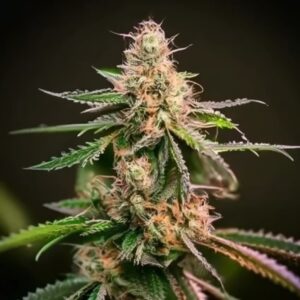


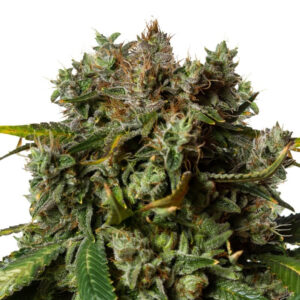

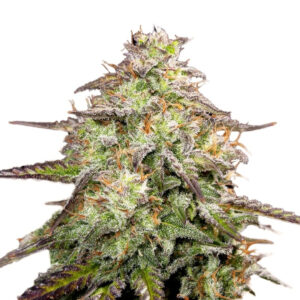
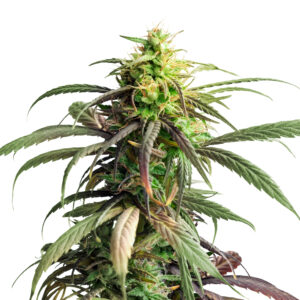






Related Posts

When it comes to choosing cannabis strains, there are many factors to consider. But one of the most important is where the strain originates from. African strains, for example, are known for their unique flavors and potent effects. And with so many different strains to choose from, there’s sure to be one that’s perfect for you.

On the other hand, nobody wants male plant because they are practically useless unless you want seeds. I must also add that a male in your crop amongst females can single-handedly ruin your whole crop of females by pollinating them -sort of, kind of like all real-life males tend to do. If a female plant gets pollinated, she will no longer focus her energy on growing flowers, but will instead start to produce seeds. So, as soon as you’ve determined that you’ve got a horny male plant, yank it out and get rid of it!
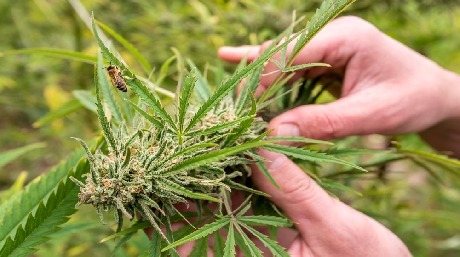
Only the female weed plants produce large flowers with resin and trichomes. In this article you will learn about male and female cannabis plants.